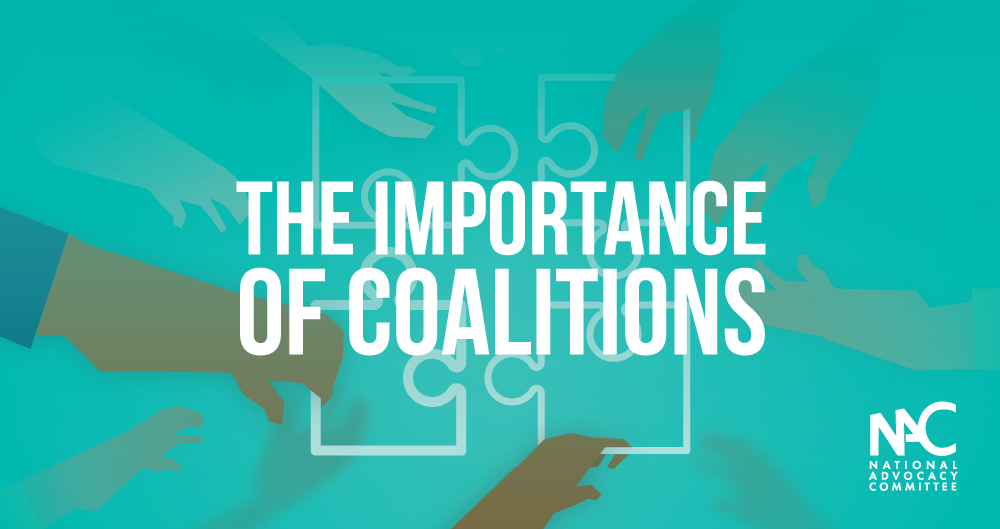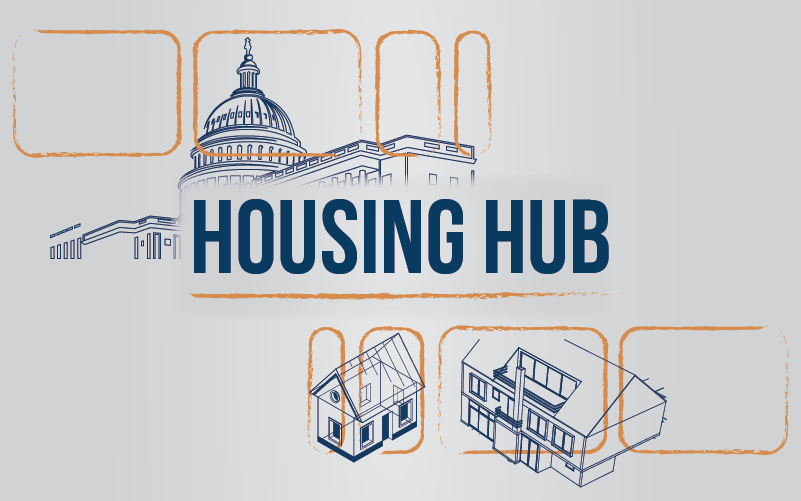The Importance of Coalitions
Celebrating NAHREP familia, cultura, politics, and grassroots action
August 4, 2022
Qué onda mi gente?!
I’ve been reflecting a lot lately about my time at NAHREP – the deep friendships we’ve created, the beautiful souls that I’ve had the honor to work alongside, and the people who help each other, uplift one another and are just overall good people. NAHREP is one network, but it’s also built of different NAHREPs. Whether it be chapters, regions, country of origins, circle of friends, those who are there strictly to build their business, and those who care deeply about making a difference for Latinos. In a way, NAHREP is a coalition within itself.
The work the policy department has done over the past few years focuses on two main goals:
- Leveraging our people-power to create an organization of advocates to drive change at the local level, using our role as constituents to put pressure on elected officials to advance change.
- Using thought leadership and our national presence to advocate for legislation and policy to bring about change at the federal level.
We speak about number #1 a lot on this blog. But #2 is something that is equally as important. In the policy world, NAHREP sits on many coalitions and I can’t stress enough how important that is. Things seldom get done alone. Most policy changes come about because a coalition of folks with a common goal come together to push work forward. It not only allows for strength in numbers, but it provides a cover for organizations to take difficult positions.

The Importance of Coalitions
When we joined advocacy organizations alongside the Mortgage Bankers Association, the National Association of Home Builders, and the National Association of REALTORS® to demand that housing be included in Build Back Better, we were able to do that because we were standing together as a coalition. We were all business organizations and Build Back Better included a lot of non-business-related items. However, our united stance was that if a big spending package was going to pass, it would be a huge mistake not to include support for one of the most pressing issues of our time: the housing shortage.
Here are a couple of things I’ve learned over the years about how to effectively work within coalitions:
- Develop friendships with other individuals within the coalition. First and foremost, it is important that you take the time to get to know other coalition representatives as people. Establishing trust with members of the organization on a personal level can make all the difference in the effectiveness of the work. People need to know what you are about personally, not just the organization.
- Being humble goes a long way. While it is important to be assertive and show leadership, you will be working with a lot of different personalities and egos. Even if you think your ideas are better, it is important to show deference for the people who have put in the work and poured their hearts into these causes for years.
- Better ideas come from more perspectives in a room. Some of the best policy ideas come from coalition work because it allows for exchanges of information, experience, and skills. It also allows for people to point out aspects that you may not have thought of, including opposition you might not have anticipated.
- Compromise can be a good thing. Nowadays, compromise is a bad word. With polarization at its highest, the more extreme people are, the more they are rewarded. Back in the day, that’s how change would come about – through compromise! They say that if a compromise is reached and no one is happy, then that’s when you know it’s a good piece of public policy. As a representative of an organization, you might need to go back to your organization and sell the compromise. It’s like any negotiation.
- You may not always get credit for your work. Sometimes the coalition as a whole gets recognition rather than individual members. Or, certain members get more recognition than others. It’s important to remember that at the end of the day, the cause matters more.
Coalition work is hard. However, in my opinion, it is truly the most effective way to achieve change through public policy. This is why we encourage all of you to work with other housing organizations in your area. We’re not just talking with other realtor groups or mortgage bankers. It is important to work with other housing advocacy organizations, non-profits, builders, and Latino organizations. Identify them and get a seat at the table. That is why our grassroots work is so important. This is how we change the world.

About Noerena Limón
Noerena Limón is NAHREP’s Executive Vice President of Public Policy and Industry Relations. Noerena heads the organization’s policy and advocacy efforts on issues ranging from homeownership, housing inventory, credit access and immigration.
Prior to joining NAHREP, Noerena spent six years at the Consumer Financial Protection Bureau (CFPB) and served as a political appointee under President Obama in the White House Office of Political Affairs.



